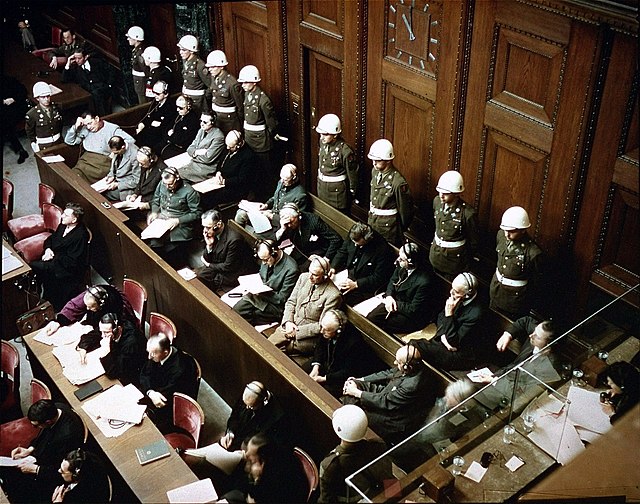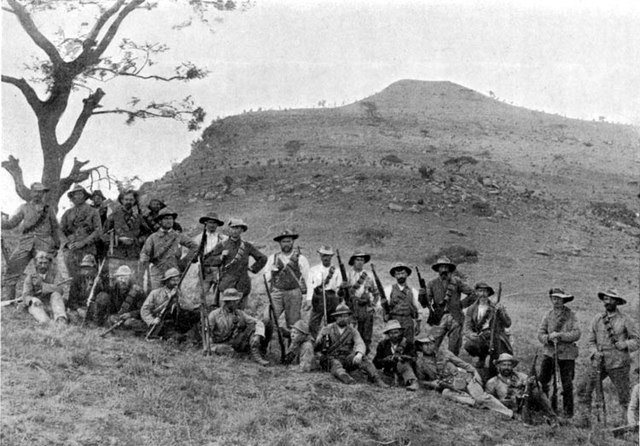Superior orders, also known as the Nuremberg defense or just following orders, is a plea in a court of law that a person, whether a member of the military, law enforcement, or the civilian population, should not be considered guilty of committing crimes that were ordered by a superior officer or official.
Defendants in the dock at the Nuremberg trials
Hagenbach on trial, from Berner Chronik des Diebold Schilling dem Älteren
Dostler tied to a stake before the execution
Photo of the trial at Nuremberg, depicting the defendants, guarded by American Military Police
In the practice of international law, command responsibility is the legal doctrine of hierarchical accountability for war crimes, whereby a commanding officer (military) and a superior officer (civil) is legally responsible for the war crimes and the crimes against humanity committed by his subordinates; thus, a commanding officer always is accountable for the acts of commission and the acts of omission of his soldiers.
Command responsibility: the war criminals of the world are tried, judged, and sentenced by the International Criminal Court at The Hague, Netherlands.
Command responsibility: The war-crimes trial of the Knight Hagenbach. (Berner Chronik des Diebold Schilling dem Älteren).
Nazi Germany (1933–1945) created the Volkssturm national militia to defend Germany from the Red Army in the last months of the Second World War (1939–1945) in Europe.
Irregular soldiers: Boer militias waged guerrilla warfare against the British Army in the Second Boer War (1899–1902) in South Africa.







